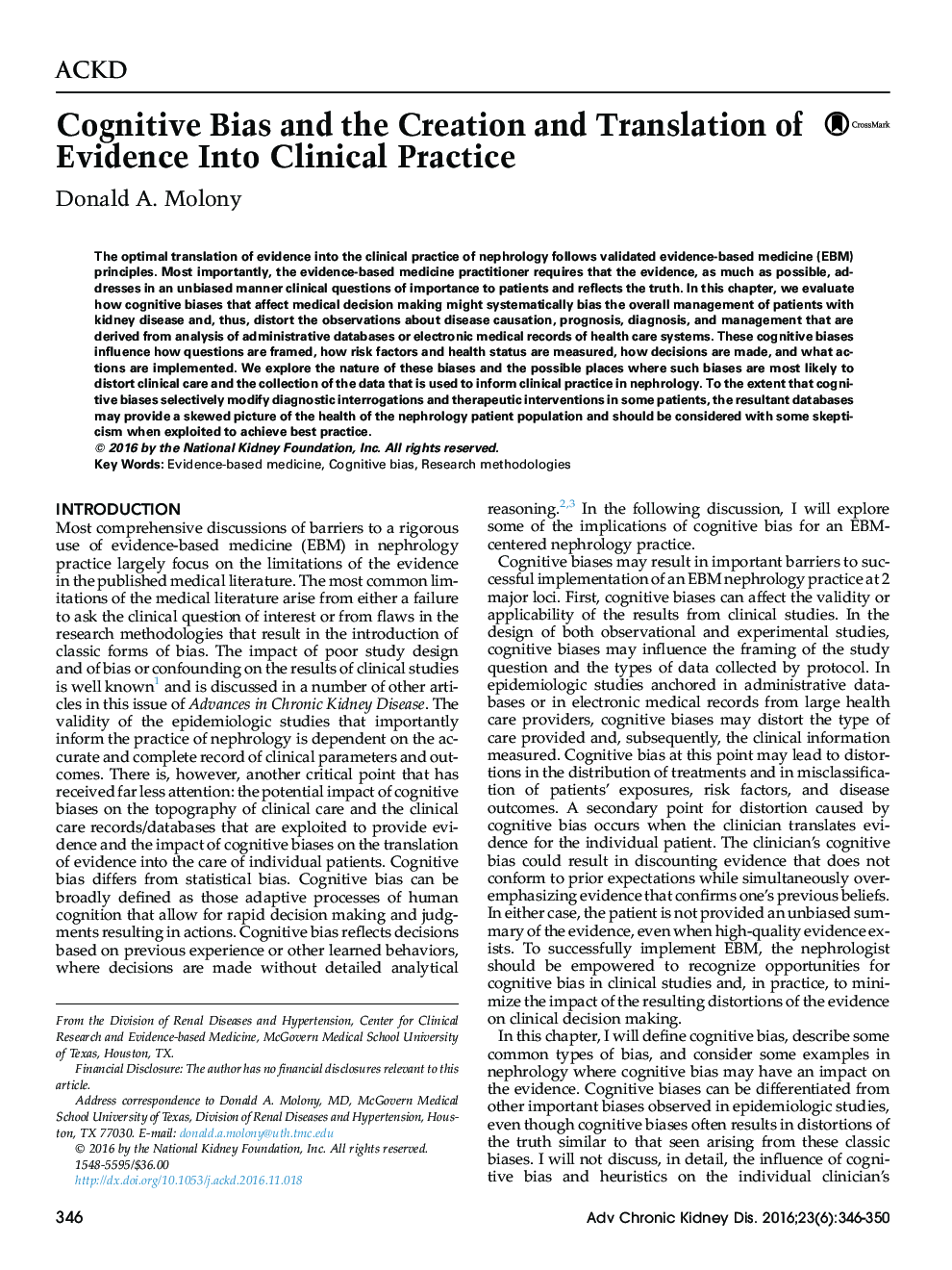| کد مقاله | کد نشریه | سال انتشار | مقاله انگلیسی | نسخه تمام متن |
|---|---|---|---|---|
| 5685246 | 1409018 | 2016 | 5 صفحه PDF | دانلود رایگان |
عنوان انگلیسی مقاله ISI
Cognitive Bias and the Creation and Translation of Evidence Into Clinical Practice
ترجمه فارسی عنوان
اختلال شناختی و ایجاد و ترجمه شواهد در عمل بالینی
دانلود مقاله + سفارش ترجمه
دانلود مقاله ISI انگلیسی
رایگان برای ایرانیان
کلمات کلیدی
پزشکی مبتنی بر شواهد، تعصب شناختی، روش های تحقیق،
موضوعات مرتبط
علوم پزشکی و سلامت
پزشکی و دندانپزشکی
بیماریهای کلیوی
چکیده انگلیسی
The optimal translation of evidence into the clinical practice of nephrology follows validated evidence-based medicine (EBM) principles. Most importantly, the evidence-based medicine practitioner requires that the evidence, as much as possible, addresses in an unbiased manner clinical questions of importance to patients and reflects the truth. In this chapter, we evaluate how cognitive biases that affect medical decision making might systematically bias the overall management of patients with kidney disease and, thus, distort the observations about disease causation, prognosis, diagnosis, and management that are derived from analysis of administrative databases or electronic medical records of health care systems. These cognitive biases influence how questions are framed, how risk factors and health status are measured, how decisions are made, and what actions are implemented. We explore the nature of these biases and the possible places where such biases are most likely to distort clinical care and the collection of the data that is used to inform clinical practice in nephrology. To the extent that cognitive biases selectively modify diagnostic interrogations and therapeutic interventions in some patients, the resultant databases may provide a skewed picture of the health of the nephrology patient population and should be considered with some skepticism when exploited to achieve best practice.
ناشر
Database: Elsevier - ScienceDirect (ساینس دایرکت)
Journal: Advances in Chronic Kidney Disease - Volume 23, Issue 6, November 2016, Pages 346-350
Journal: Advances in Chronic Kidney Disease - Volume 23, Issue 6, November 2016, Pages 346-350
نویسندگان
Donald A. Molony,
